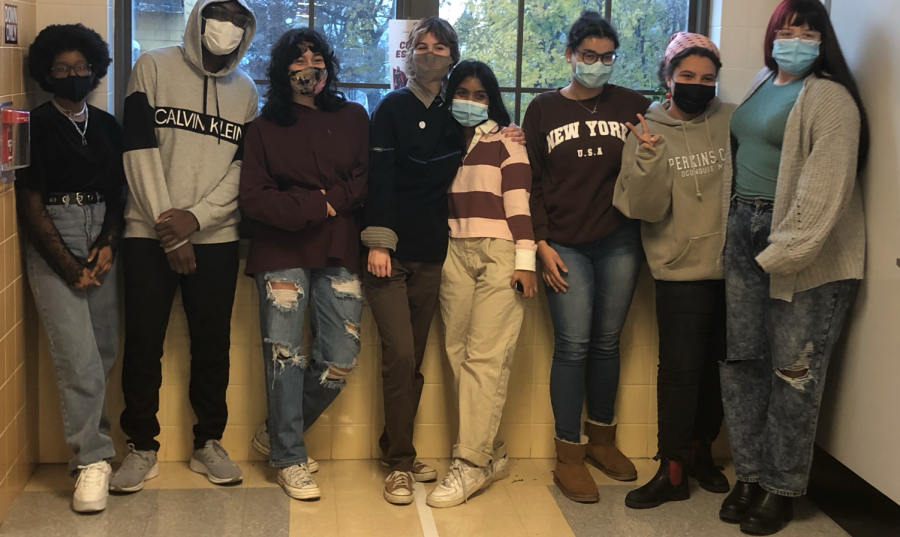New Intersectional Feminism Club Emphasizes Inclusivity in Activism
A new feminism club strives to make a difference.
The Intersectional Feminism club represents inclusivity in activism. The club is run by Curtis students Ellis-Percy Mitchell and Ashfia Islam. When asked about what their club stands for, they said, “We hope to instill hope in our future by giving a voice to those who are interested in becoming activists.” The club aims to create a safe environment for having difficult conversations like women’s reproductive rights or how the effects of misogyny on the LGBTQ community. In addition to this, the club has big plans to create change in our community. According to both founders, “We have some ideas about how we can connect with different social justice groups on Staten Island, such as the Pride Center. We also want to help our community by holding drives to give out hygiene products, food, clothes and other important items to underserved members of our community.”
61% of women in the U.S. say that the word feminist describes them well, but not all feminism is made equal.
70% of women think feminism is empowering, according to a national survey by the Washington Post and Kaiser Family Foundation. But not all feminism is made equal.
So, what is intersectional feminism? As described by Ellis-Percy Mitchell and Ashfia Islam, it is, “a term created by lawyer and activist, Kimberle Crenshaw meant to give a voice to marginalized people such as BIPOC (Black Indigeonous People of Color) women, non-binary, and trans people in our society.” In the media we see a lot of representation of white feminism, activists who fail to advocate in the interest of people of color. Instead, the Intersectional Feminism club focuses on acknowledging how misogyny impacts different identities and educating those who aren’t impacted by these issues. They explained, “Our club is meant for anyone who wants to learn more about intersectionality and/or feminism. Anyone, regardless of gender, who wishes to understand more about their role in society and their privilege(s) and disadvantage(s) is welcome.”
Former member of Curtis’s feminist club Zoe Taylor-Ploog appreciates the more progressive take on feminism. She explained, “I like the new approach to feminism at Curtis High School. The Intersection Feminism club will take more of an active interest in inequality as a whole.” Zoe explained that the old feminist club had discussions about race and LGBTQ+ rights, but the new club leaves room for respect and understanding at it’s core. It is important to be aware of privilege in activism, and the Intersectional Feminism club does exactly that.
Whether you want to be a part of a more progressive type of feminism or just to educate yourself on ways you can contribute to bettering your community, the Intersectional Feminism club might be for you.
You can contact the founders with any of the following contact information:
Ellis-Percy Mitchell: [email protected]
Ashfia Islam: [email protected]


